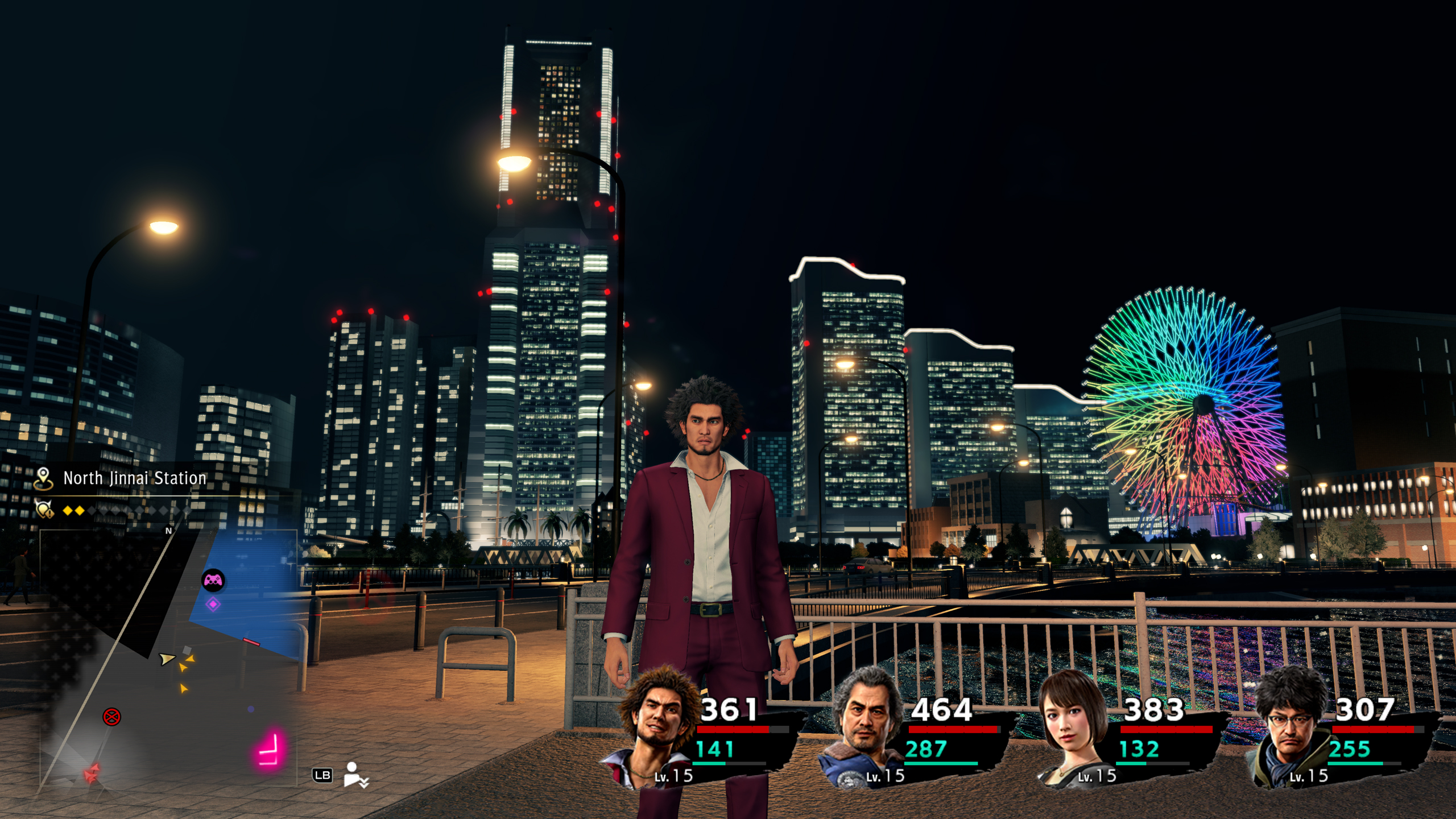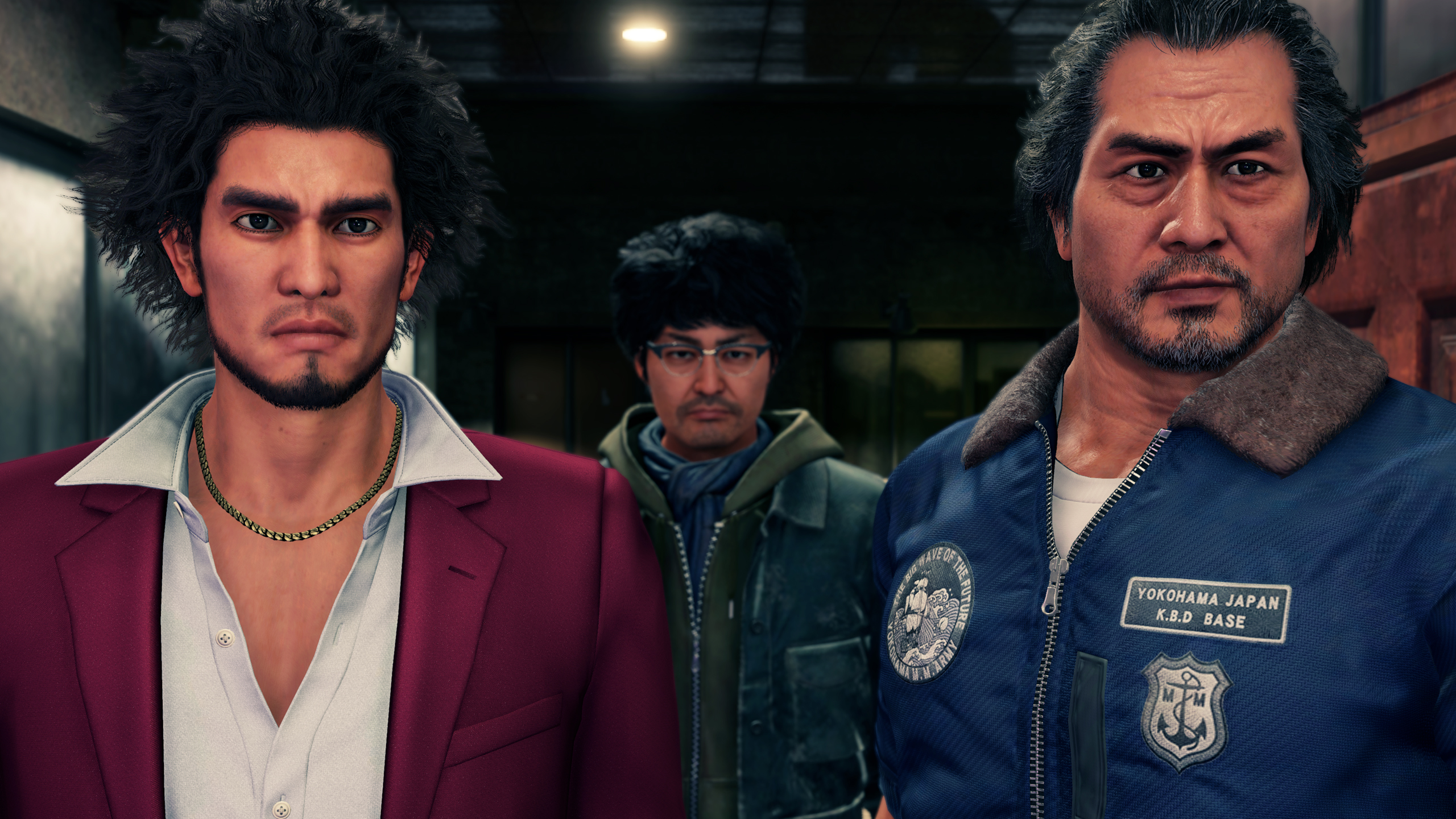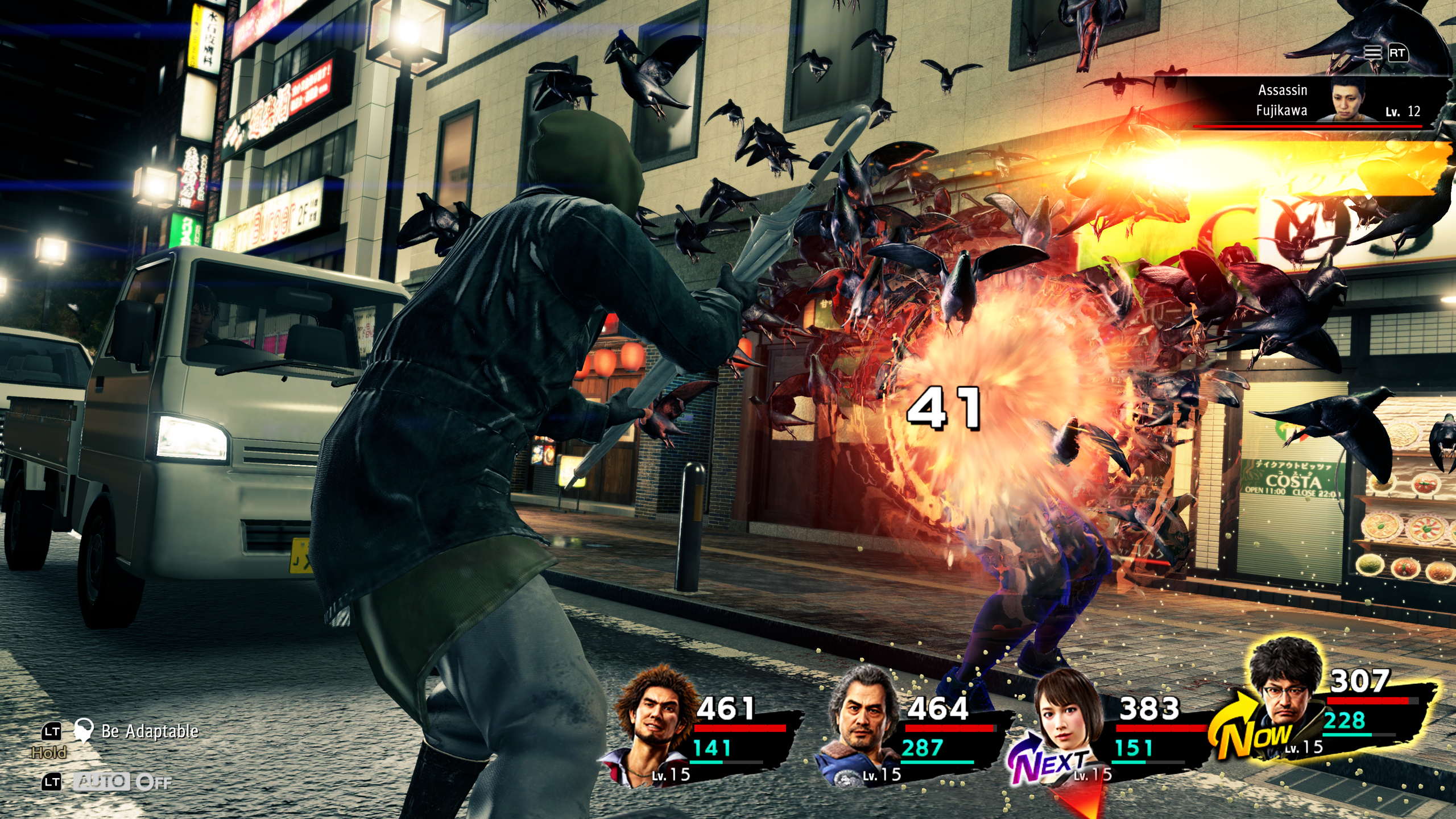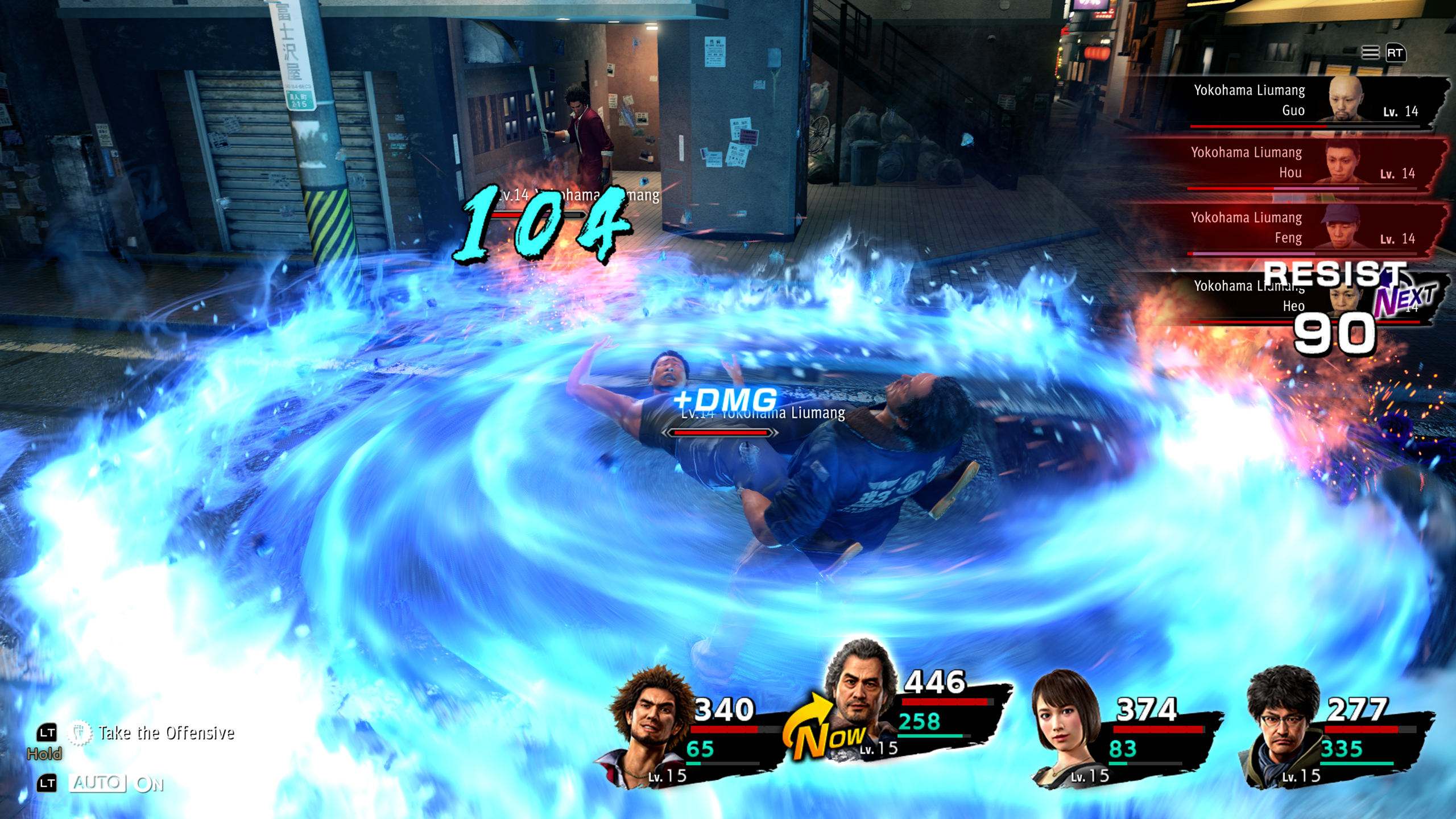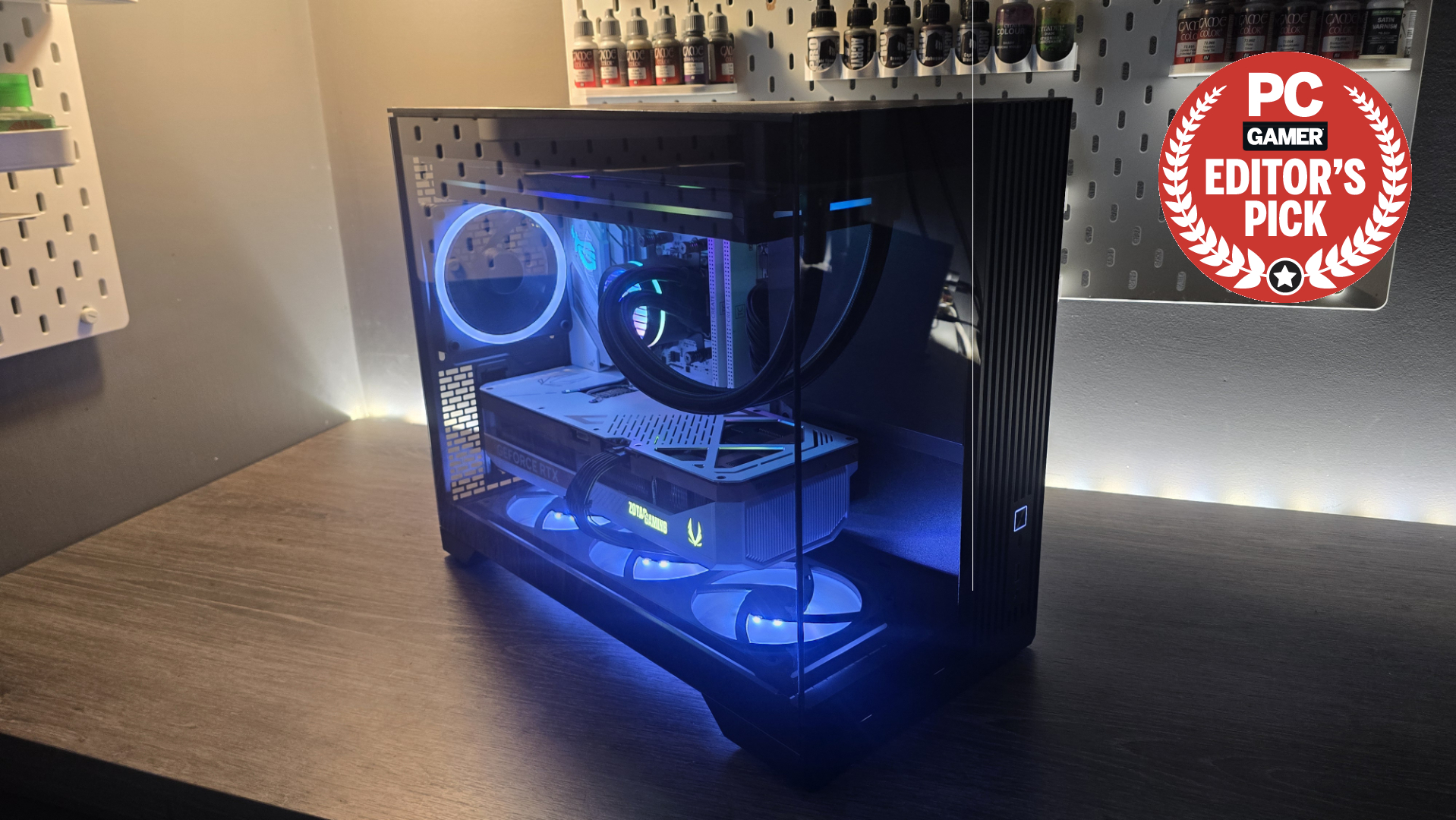New hero, new turn-based combat, but Yakuza: Like a Dragon is still the game you know and love
We go hands-on with the seventh Yakuza game.
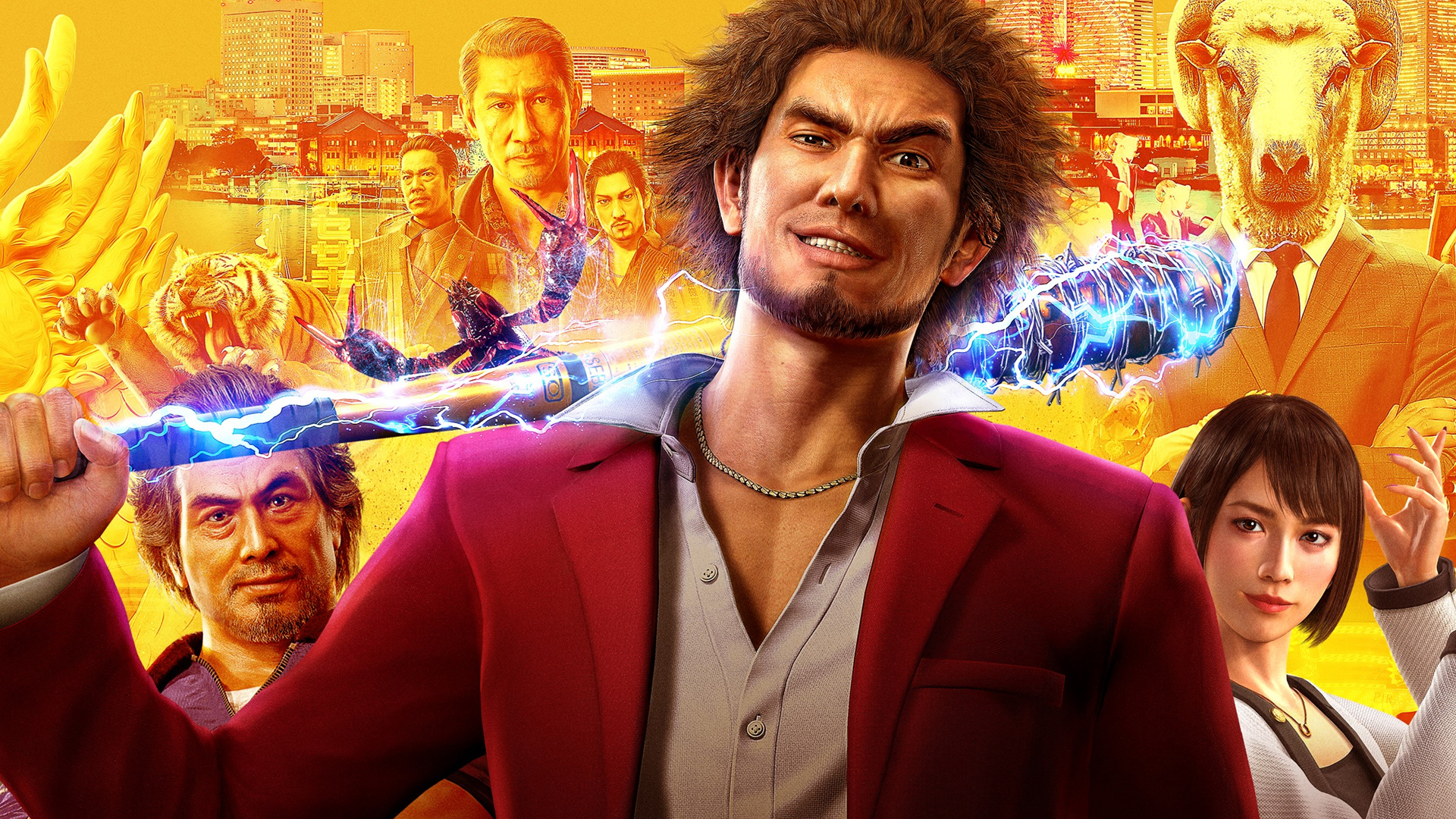
Keep up to date with the most important stories and the best deals, as picked by the PC Gamer team.
You are now subscribed
Your newsletter sign-up was successful
Want to add more newsletters?
Ichiban Kasuga, the mop-haired hero of Yakuza 7, couldn't be more different from series stalwart Kazuma Kiryu. They both share a love of garish, shiny suits and have hearts of gold under their hard exteriors, but the similarities end there. Ichi can handle himself in a fight and intimidate people when he has to. But he's also excitable, eccentric, and naive to a fault, which makes him one of the most fun, likeable leads in this long-running series.
Ichiban was a low-level yakuza in Kamurocho, the Tokyo red light district that serves as the main setting for most of the Yakuza games. But after a series of unfortunate events, he ends up homeless in the city of Yokohama, banished from his family, and betrayed by the person he trusted most in the world. Yakuza: Like a Dragon is about Ichi piecing his life back together, reckoning with his past, and beating a lot of people up along the way.
This is a Yakuza game through and through, marrying elaborate criminal conspiracies, slapstick comedy, and heartfelt melodrama in a way that shouldn't work, but somehow absolutely does. It has the same distinctive sense of humour, an immersive urban Japanese setting to explore, and absurd sidequests. But while this series is often accused of resting on its laurels, the seventh game shakes at least one thing up in a pretty major way.
One of Ichi's many endearing traits is his love of the Dragon Quest games. He has an overactive imagination, and when he encounters someone who wants to start a scrap, he experiences the ensuing fight in the style of an RPG battle. This gives some narrative reasoning for the biggest change Yakuza 7 makes to the series' rigidly established formula: swapping out the usual combo-based brawling for a JRPG-inspired turn-based combat system.
It has the same distinctive sense of humour, an immersive urban Japanese setting, and absurd sidequests
I've read a few reviews of the Japanese version of the game, which was released in January, and a common criticism is that the combat takes a while to get going. You start out with only a handful of moves, which you're forced to repeat constantly. But this isn't an issue in my preview build, which dumps me about 7-8 hours into the game. I have a party of four characters and a huge selection of wild, imaginative abilities to play with.
And I was delighted to discover that the combat, although very different from previous Yakuza games (which, I admit, does take some getting used to), is extremely good. It's pretty standard fare if you've ever played a Japanese RPG before, with status effects, buffs, debuffs, and a mix of weapon-based and magic attacks. But the vibrant presentation, superb animation, lively pace, and smooth flow make up for its relative simplicity.
Even the strongest RPG hero is nothing without a party, and as the story progresses and Ichi makes a name for himself in Yokohama, he makes a lot of new friends—some of whom offer to fight alongside him. These include Adachi, a grizzled ex-cop with first-hand knowledge of Yokohama's criminal underworld, and my favourite, Namba, a tough but kind-hearted homeless guy who teaches Ichi how to survive on the streets.
Keep up to date with the most important stories and the best deals, as picked by the PC Gamer team.
Namba also has some of the most entertaining combat abilities, including throwing beans at an enemy, which causes a flock of dirty pigeons to come rushing in and peck them to within an inch of their life. He can also heal himself mid-battle by plonking down a flattened cardboard box, scratching his arse, and grabbing a quick snooze. All of the game's outlandish special attacks have some thematic connection to the characters who use them.
I'm still undecided about how movement in battles works, though. You don't control where your characters are positioned; instead they (and their opponents) wander around the battlefield randomly. So if you want to use an area of effect spell and damage multiple bunched-up enemies at once, all you can do is wait until the AI decides to position them appropriately. I'd have liked a little more control over this aspect of the combat.
The fact that most of what you're seeing in battle is happening in Ichi's head has given the developer a huge amount of creative freedom, which means you're no longer battling hordes of identical thugs and yakuza. Enemies include demonic chefs, jiving greasers, creepy cultists, and frustrated otaku. And when you defeat these weirdos they're added to a Pokédex-inspired Sujidex.
Hanging out with your friends outside of combat—listening to their sob stories in bars, grabbing a beef bowl, or singing karaoke—increases your bond, which in turn makes the party more effective in combat. Yakuza games are typically quite lonely affairs, with the protagonist dashing around the streets on their own. But here your party is always in tow, appearing in cutscenes and commenting on the story and what's happening around you.
Enemies include demonic chefs, jiving greasers, creepy cultists, and frustrated otaku
Yokohama is one of the biggest Yakuza cities yet. You could fit Kamurocho into it several times over, and the series' fast travel taxis are more useful here than ever. The downside of this is that it isn't quite as packed with detail, nor does it have the decades of layered world-building that makes Kiryu's stomping ground such an enduring setting. But it's still incredibly atmospheric, and the districts are nicely varied.
From the narrow, grimy streets of Chinatown to the bustling, traffic-stuffed downtown area, the city is heaving with distractions. Golf, karaoke, darts, restaurants, slot machines, go-kart racing, weapon shops... the sheer volume of stuff in Yokohama is overwhelming. If what I've read about the Japanese version is accurate, you're looking at over 80 hours of game here if you choose to indulge in everything the city has to offer.
I still think Yakuza 0 will probably be the best way for a curious newcomer to dive into the wonderful world of the Yakuza series—but Like a Dragon may come a close second. It's a completely new, standalone story, which means you don't have to be well-versed in the adventures of Kiryu, Majima, and co. to know what's going on. And it features all the quality of life improvements that have been gradually added to the games over the years.
I'll be back with a full review of Yakuza: Like a Dragon closer to its November 13 release, and I hope it's another great entry in the series. The idea of turn-based battles might put some fans off, but give the new system a chance and it reveals itself to be every bit as dramatic, theatrical, and fun as the series' regular real-time combat. And from the moment Ichi first appeared on the screen, I knew I was gonna love his goofy ass.
If it’s set in space, Andy will probably write about it. He loves sci-fi, adventure games, taking screenshots, Twin Peaks, weird sims, Alien: Isolation, and anything with a good story.
